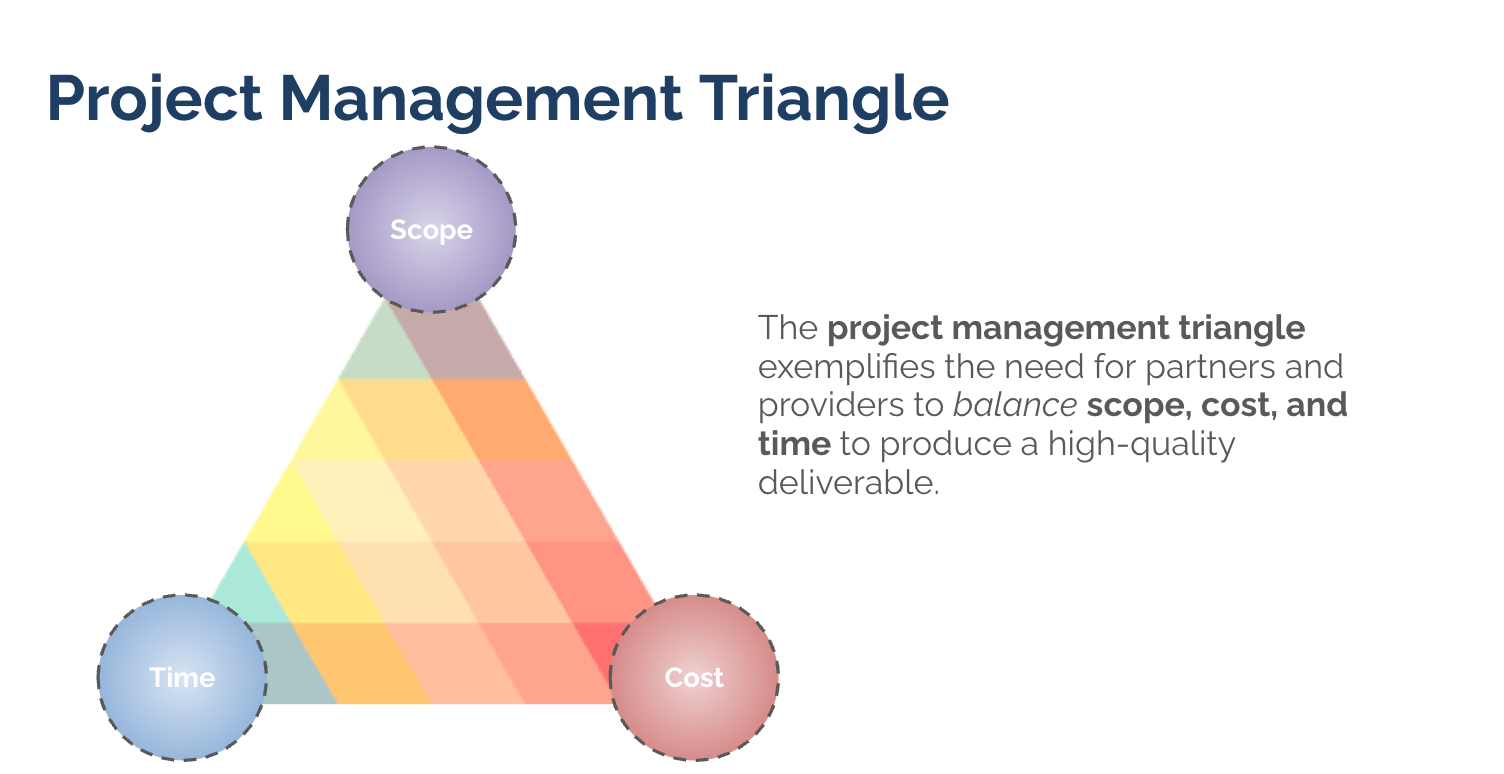Managing scope changes is a crucial aspect of project management, especially when working with short-term consultants for capacity building support. Understanding how to navigate scope changes effectively ensures projects stay on track, goals are met, and resources are utilized efficiently. Let’s delve into some key considerations and strategies for education professionals leading organizations.
Understanding Scopes and Scope Changes
Before diving into managing scope changes, it’s essential to have a clear understanding of what constitutes a project scope. Scopes encompass detailed explanations of project goals, activities, outcomes, costs, and timelines. Any deviation from these components necessitates a scope change, which must be managed effectively to maintain project balance.
In managing projects, the project management triangle can serve as a guiding principle. The three vertices represent scope, time, and cost, which must be managed in equilibrium to ensure project success. Any changes in one aspect inevitably impact the others, highlighting the importance of maintaining balance.

Key Considerations for Managing Scope Changes
When faced with scope changes, education leaders should consider several key factors to navigate them effectively:
- Immediate discussion: Timely communication is crucial when discussing scope changes. Delaying discussions can lead to inefficiencies and unnecessary costs.
- Precision in changes: Changes must be clearly articulated and documented to ensure all parties understand their implications. Precision minimizes misunderstandings and ensures alignment.
- Recording changes: Documenting changes in a shared and accessible format is essential for clarity and accountability. Changes may necessitate amendments to contracts, reinforcing the importance of proper documentation.
- Alignment with project goals: Any scope changes should align with the project’s overarching goals. Careful assessment is required to ensure changes contribute to desired outcomes.
- Acknowledging provider impact: Recognizing the impact of scope changes on providers is vital for maintaining healthy partnerships. Changes may require adjustments in time, resources, and compensation.
Managing scope changes in projects requires proactive communication, precision, and a commitment to maintaining balance among scope, time, and cost.
Don’t let scope changes derail your projects. Let our Capacity Advisors lend their hands-on support so you can tackle your biggest challenges.
